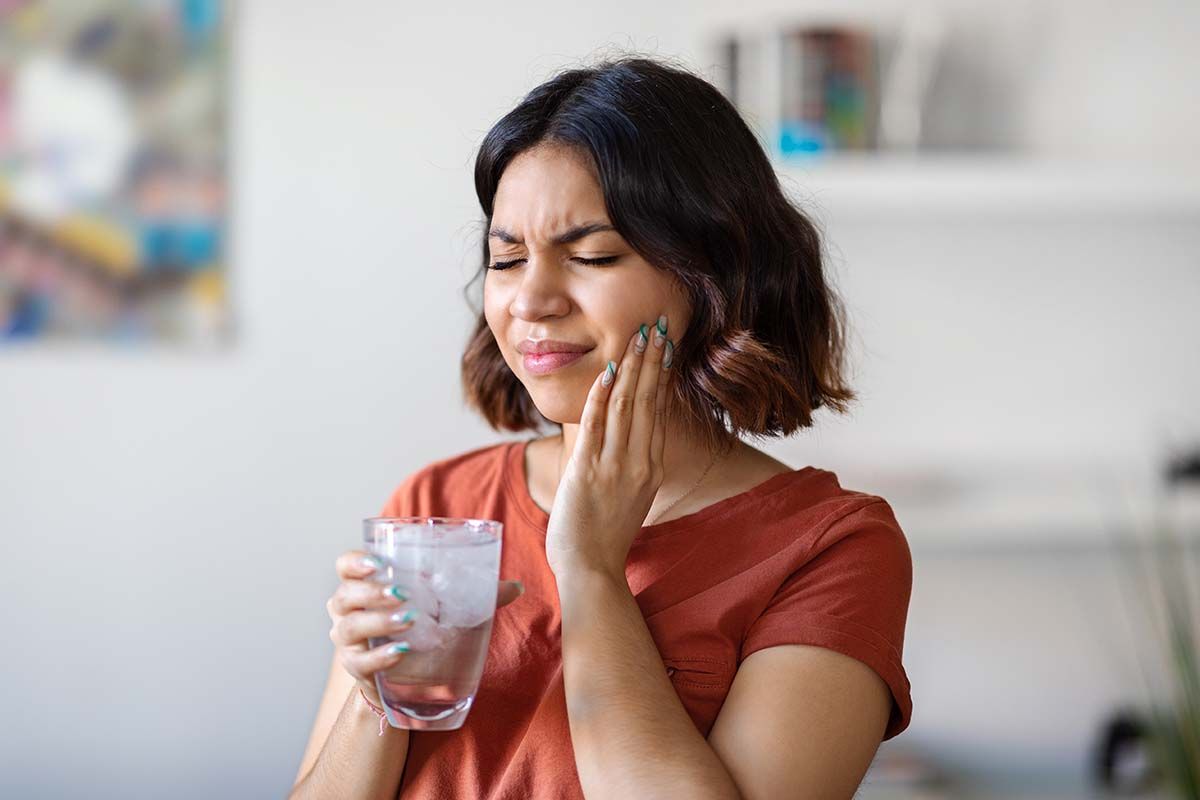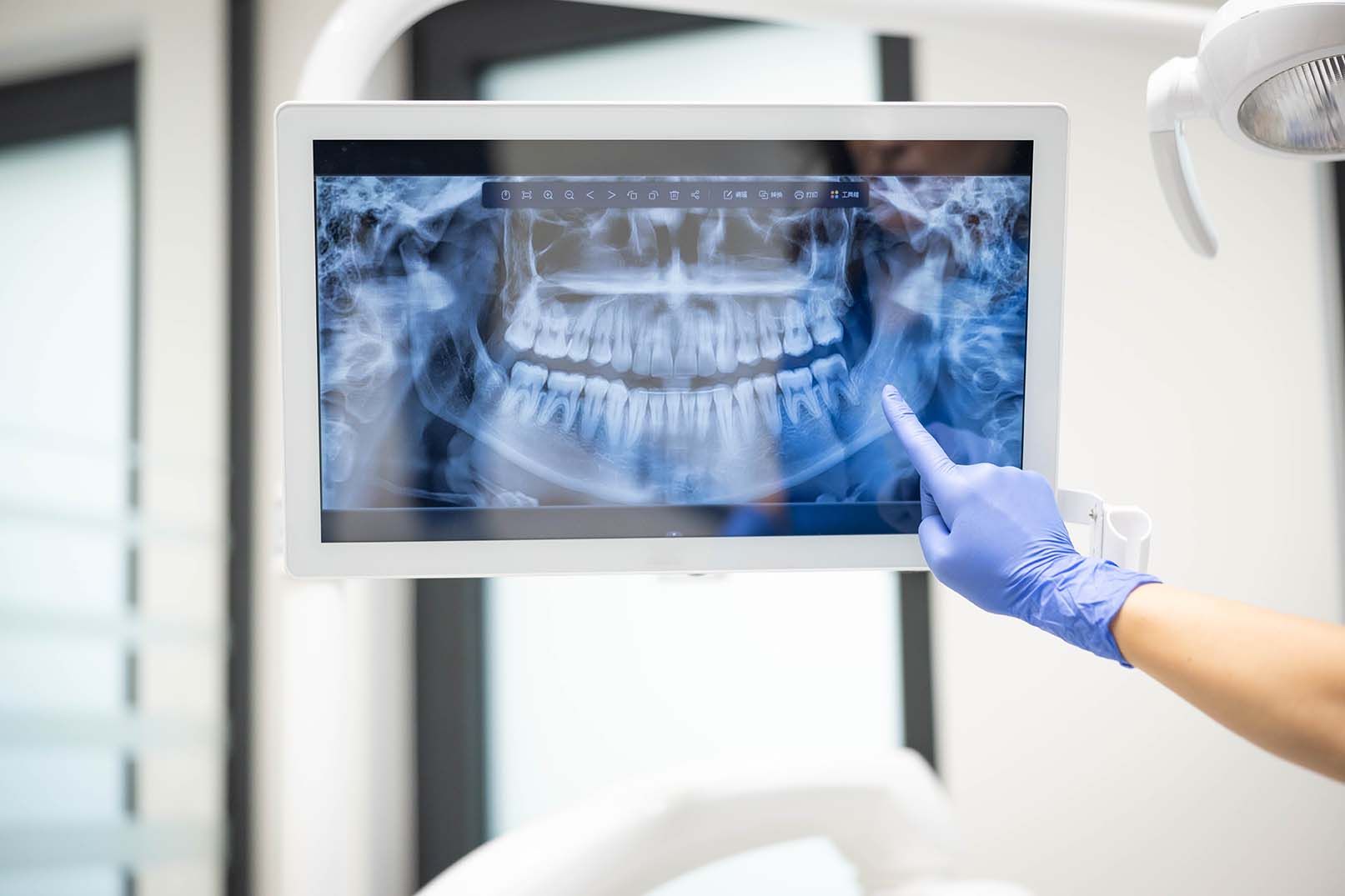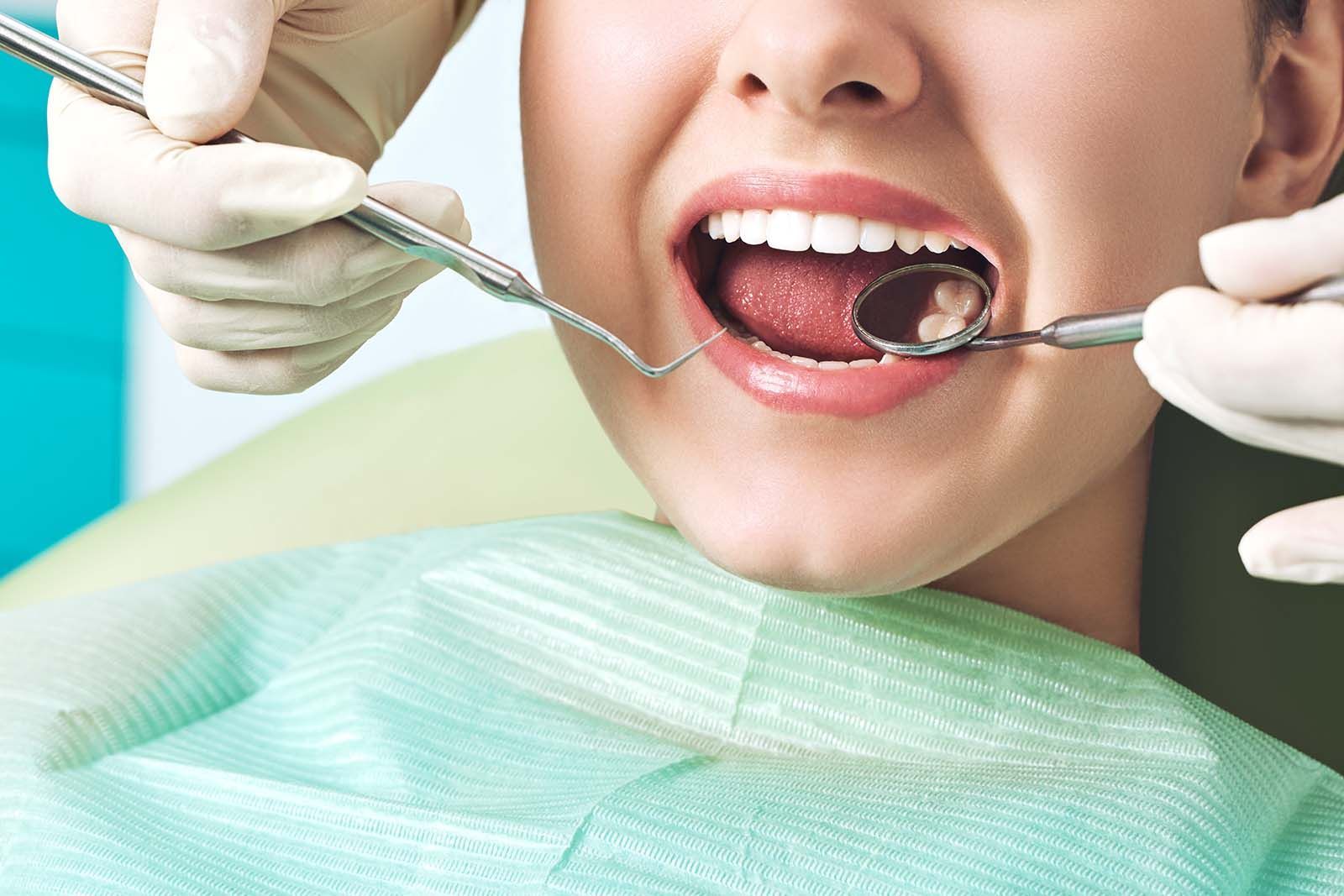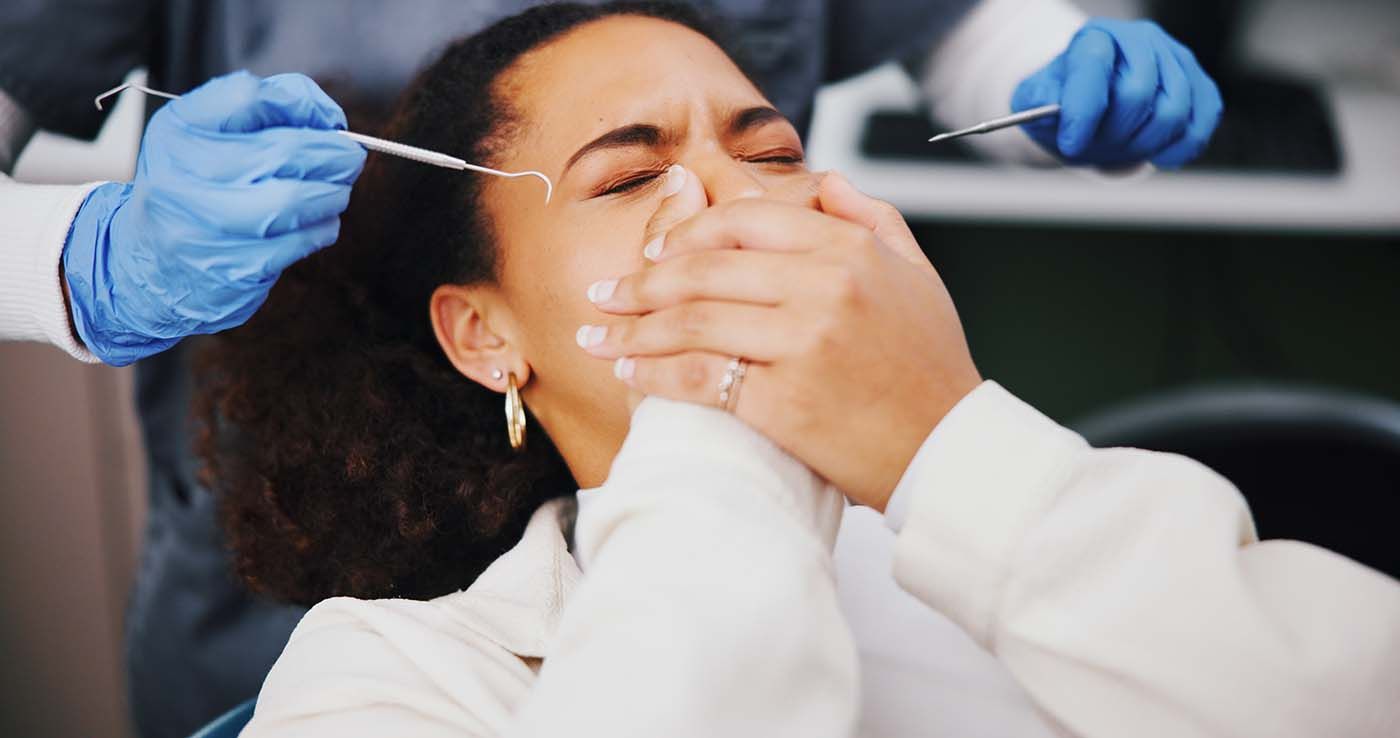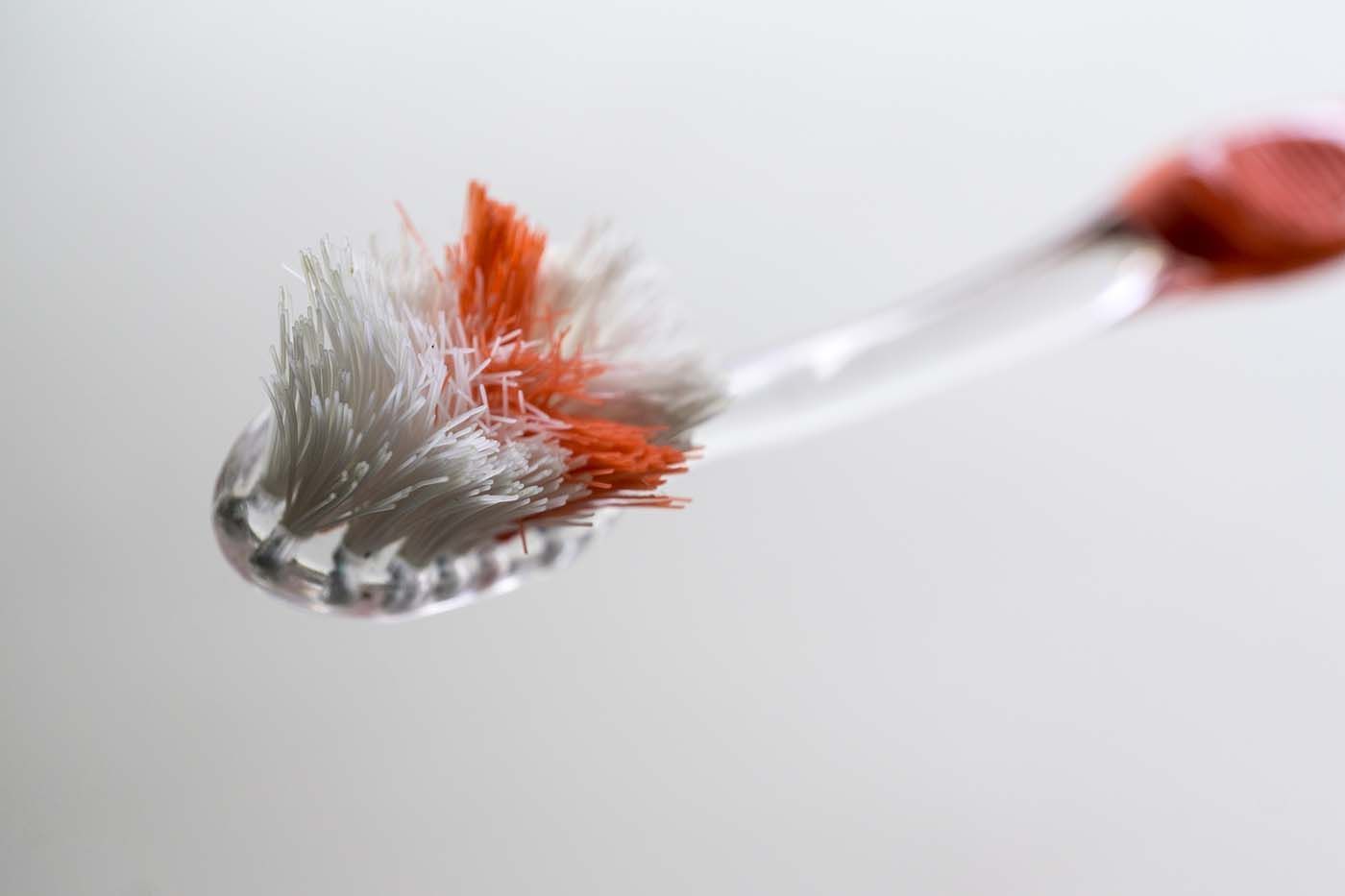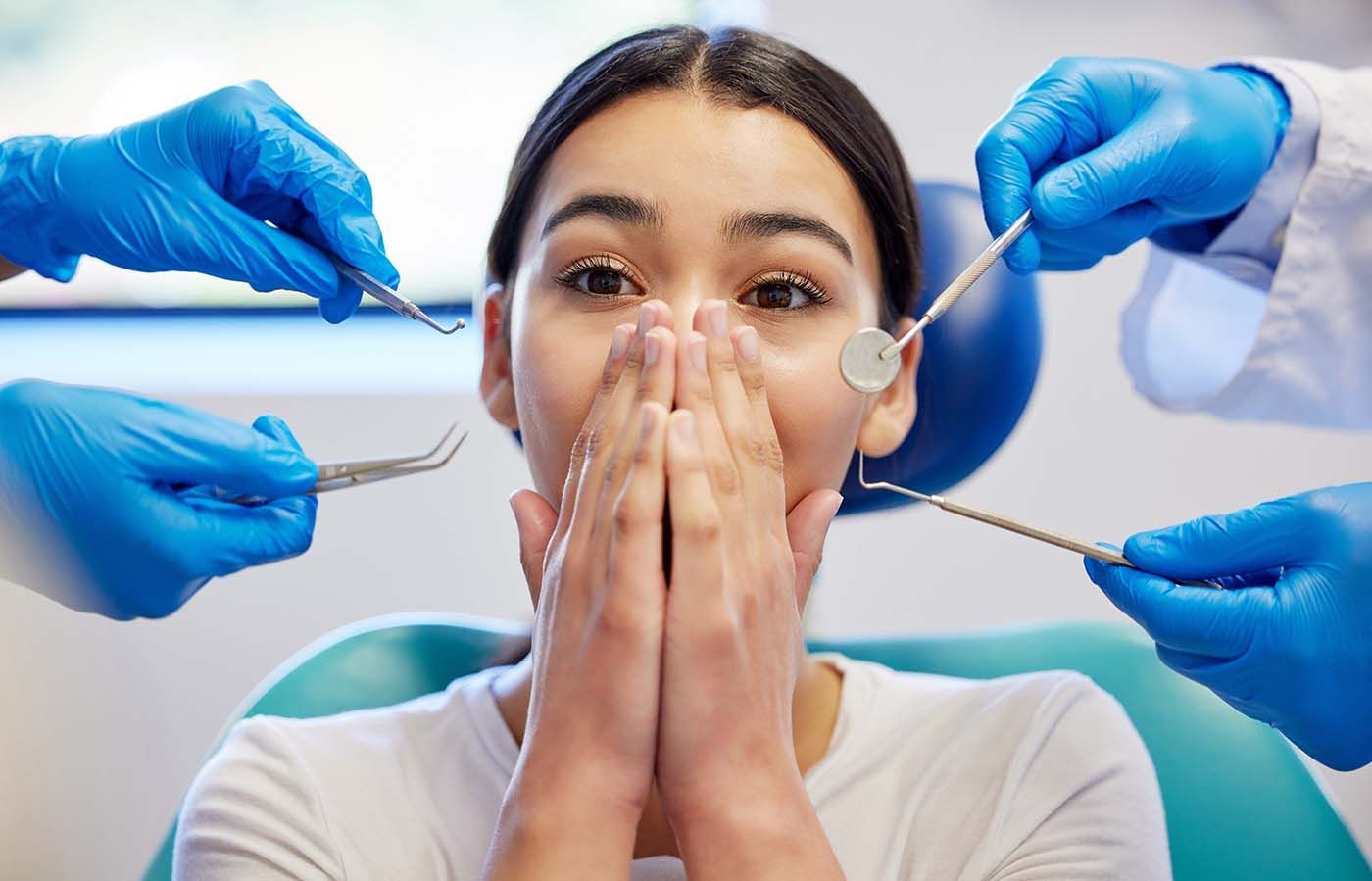Common Dental Problems and How to Prevent Them
Dr Colleen L. Catera DMD
Quick Answer: How do I prevent the most common dental problems?
Brush twice daily with a fluoride toothpaste, floss once a day, limit sugary/acidic snacks and drinks, drink plenty of water, don’t skip your 6-month checkups and cleanings, and wear a mouthguard if you grind or play sports. If something hurts, call your dentist quickly—early care prevents bigger (and costlier) problems.
1) Tooth Decay (Cavities)
What it is: Softened enamel caused by acid-producing bacteria.
How you’ll notice it: Sensitivity to sweets/cold, occasional pain, or dark spots.
Prevention checklist:
- Brush AM/PM with fluoride toothpaste; angle bristles toward the gumline.
- Floss daily to remove plaque between teeth.
- Rinse with a fluoride or xylitol rinse if your cavity risk is high.
- Keep snacks to mealtimes; sip water instead of sugary drinks.
When to see us: Sensitivity that lingers, visible pits, or food repeatedly catching. Small cavities are often treated with tooth-colored composite fillings (see our Composite Restorations) and sometimes a dental crown if the tooth is heavily damaged (Dental Crowns).
2) Gum Disease (Gingivitis & Periodontitis)
What it is: Inflammation/infection of the gums and supporting bone.
Early signs: Bleeding when brushing or flossing, swollen or tender gums, bad breath.
Prevention checklist:
- Floss daily—this is the single best habit for gum health.
- Brush along the gumline for 2 minutes, twice daily.
- Don’t miss professional cleanings to remove tartar you can’t reach at home.
- Quit smoking/vaping; they raise gum disease risk.
Why it matters: Gum disease is the #1 cause of adult tooth loss. Early treatment (deep cleaning, localized antibiotics, ongoing maintenance) preserves teeth and bone—learn more on our Periodontal Dentistry page.

3) Tooth Sensitivity
What it is: Pain from exposed dentin, gum recession, enamel wear, or cracks.
Prevention checklist:
- Use a soft-bristled brush; avoid aggressive scrubbing.
- Switch to a sensitivity toothpaste for daily use.
- Limit acid exposure (seltzers, citrus, sports/energy drinks); rinse with water after.
- Treat clenching/grinding with a custom nightguard.
See us if: Sensitivity persists longer than a week or worsens—cracks, cavities, or infection may be involved and can be confirmed with digital X-rays (Digital X-Rays).
4) Cracked, Worn, or Broken Teeth
Common causes: Nighttime grinding (bruxism), sports impacts, chewing ice or hard candy.
Prevention checklist:
- Wear a custom nightguard if you grind.
- Don’t use teeth as tools; skip chewing ice.
- Consider Invisalign to correct bite issues that stress teeth (Invisalign).
Treatment options: Tooth-colored fillings for small chips, crowns for larger fractures, and root canal if the nerve is involved (Root Canal Treatment).

5) Infections & Dental Abscesses
What it is: Bacterial infection inside the tooth or gums—often painful and urgent.
Signs: Throbbing pain, swelling, temperature sensitivity, bad taste, fever.
Prevention & action:
- Don’t ignore lingering toothaches—early treatment prevents emergencies.
- Prompt root canal therapy can save the tooth; severe cases may require extraction with options for replacement like dental implants (Root Canal, Extractions, Implants).
6) Staining & Discoloration
Everyday culprits: Coffee, tea, red wine, tobacco, aging, certain medications.
Prevention checklist:
- Rinse with water after dark foods/drinks.
- Schedule professional cleanings to remove surface stains.
- Consider Zoom whitening for deeper stains (Whitening).
7) Crooked or Crowded Teeth (and Why They Matter)
Crooked teeth are harder to clean, raising your risk of cavities and gum disease. Clear aligners like Invisalign can improve function and hygiene while straightening your smile (Invisalign).
Your 6-Month Visit: Small Habits, Big Protection
Regular checkups let us:
- Catch small cavities early (quick, conservative fillings).
- Remove hardened tartar your brush can’t reach.
- Monitor gum health and bone levels.
- Track wear patterns, cracks, and bite issues.
- Update X-rays only as needed to minimize exposure.
Explore our General Dentistry services to see what’s included.
Q: What’s the single best habit to prevent dental problems?
A: Floss once daily—then brush for two minutes, twice a day.
Q: Do I really need to see a dentist every six months?
A: Yes—most problems start silently. Twice-yearly cleanings and exams prevent costly dentistry later.
Q: My tooth stopped hurting. Should I still call?
A: Yes. Pain that “goes away” can mean the nerve has died—waiting can lead to infection.
Q: Are dental X-rays safe?
A: Our digital X-rays use very low radiation and are taken only when clinically needed.
Dr. Colleen L. Catera DMD welcomes patients from Babylon, West Islip, Bay Shore, Lindenhurst, Deer Park, and across Suffolk County. We focus on gentle care, clear explanations, and helping anxious patients feel comfortable from the first visit.
Ready to protect your smile?
Address: 1 John St Suite 206, Babylon, NY 11702
Phone: (631) 422-6901
How can I prevent cavities without giving up sweets?
Time treats with meals, rinse with water after, and brush/floss daily. Consider a fluoride or xylitol rinse.
Why do my gums bleed when I floss?
Bleeding is a sign of inflammation. Keep flossing gently each day and schedule a professional cleaning to remove tartar.
What mouthwash should I use?
If you get frequent cavities, use a fluoride rinse; for bad breath, try an alcohol-free antibacterial rinse. Ask us which is best for you.
Do I need a nightguard?
If you wake with jaw soreness or notice tooth wear or fractures, a custom nightguard can protect your teeth and restorations.
What if I’ve already lost a tooth?
A dental implant can restore function and prevent bone loss. We’ll review if you’re a candidate.
